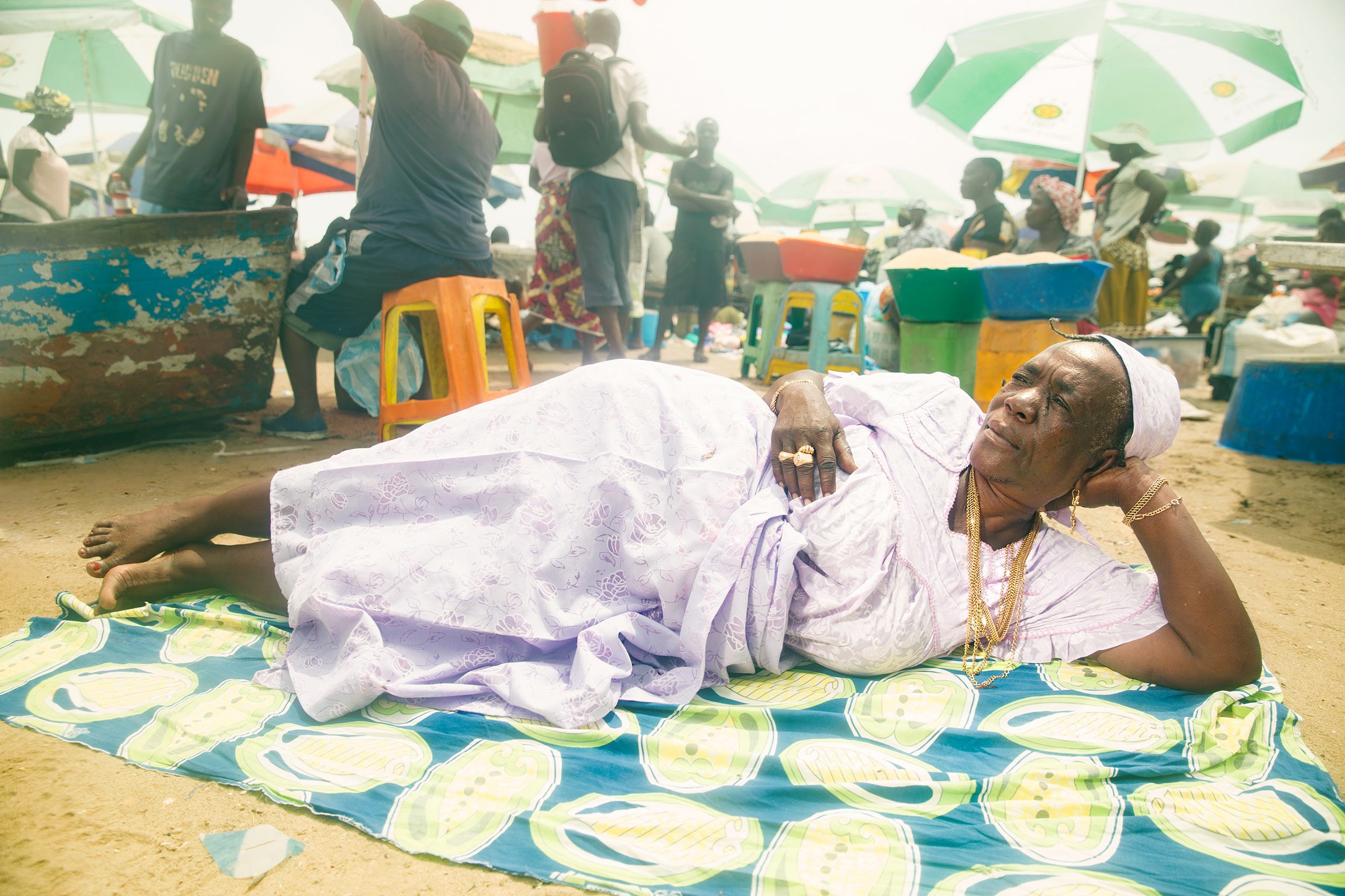


Women in the Economy #1
ZUNGA – STREET AND MARKET VENDORS
Colourful, loud, busy and in constant motion, the street life of Luanda city is fascinating from dusk to dawn. The immediate attention-grabbers are the many street vendors, laden with baskets on their heads and babies on their backs. These young women, walking at a steady pace with determined gazes, cover several miles every day, selling all manner of products. Known as zungueiras (from the Kimbundo word ‘zunga’, meaning ‘to sell’), they cater to a specific clientele, offering everything one might need for the home or dinner, which clients can conveniently purchase from their car seats while inching through rush-hour traffic. However, behind this idyllic African image often lies a tragic story.
With high unemployment rates and limited access to education or vocational training, the role of a zungueira is one taken up by the majority of young women with few resources. These women, typically single mothers who have only recently transitioned from adolescence, come from all over Angola to the capital in search of a better life and the hope of seeing their children become ‘something better’. Scarred by war, they have inherited the art of selling from their mothers and become walkers.
I have often observed that when the police appear, the women immediately flee, seeking refuge in narrow alleys or blending into the crowds. The government is attempting to put an end to street vending, aiming to establish its own market for the zungueiras. The physical and mental resilience of these women is impressive. To me, they epitomise dignity and courage.
At Luanda’s Kikolo market, I met a 22-year-old woman who prepares breakfast, lunch and dinner from 5 am to 7 pm daily. Her older son remains with her mother in her home province, while her younger son accompanied her to Luanda, where her father lives with his new wife and their nine children. She shared that, besides the physical strength gained from preparing funge every day, the motivation to rise at 4 am to help feed her family is strong, especially as securing a regular job in Luanda without an identity card, birth certificate or education is incredibly challenging.
At one of the fish markets outside Luanda, I encountered an elderly woman, strikingly calm amidst the hectic, noisy environment and adorned with gold chains. Mama Mabunda invited us to sit and share her story. Having sold fish for over 40 years, as her mother did before her, she was the driving force behind convincing local management to clean up the rubbish and build a market. Over the years, it has become her own market.
